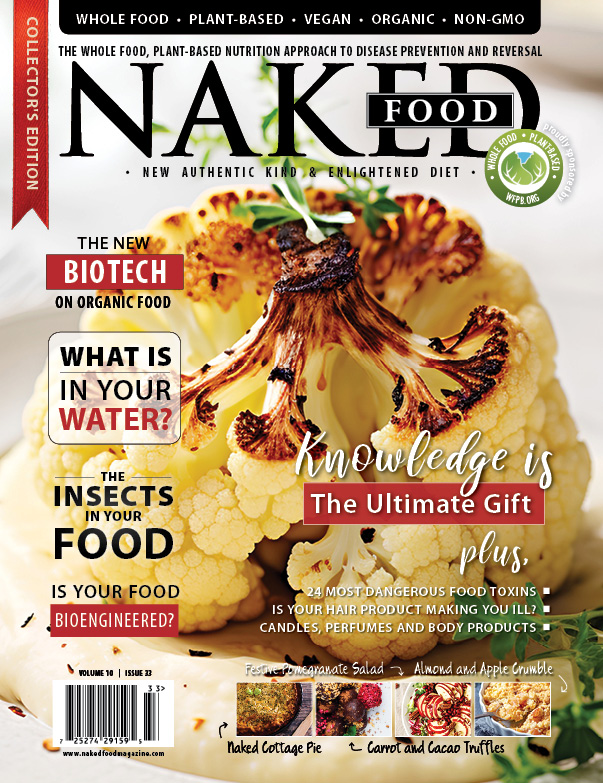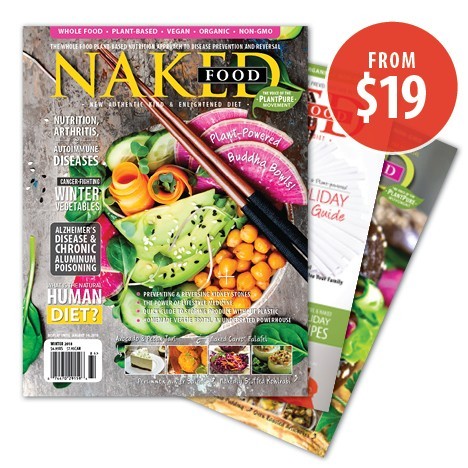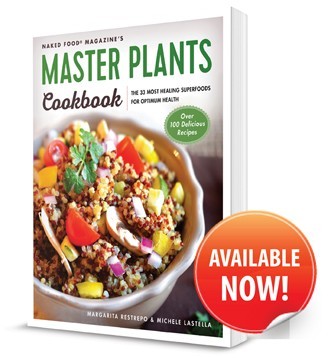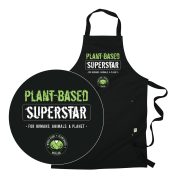 6 years ago
6 years ago
Diseases of Affluence 3,500 Years Ago
For many years, Dr. John McDougall has called conditions like heart disease, cancer, and diabetes, “diseases of affluence.” Only the affluent can afford to eat the rich Western diet with …
Read More
 7 years ago
7 years ago
Pills or Plants? The Hard Facts on Nutrition and Sexual Health
The last time I checked, the heart is about 3 feet above the genitals… so what is a cardiologist doing counseling patients on sexual performance? In the nearly 30 years …
Read More
 7 years ago
7 years ago
Sun Avoidance Worsens Health Outcomes
It’s Spring: the time of year when I’m asked almost every day about sun exposure, sunscreens, and other related questions. There are some points about which we all agree: sun …
Read More
 7 years ago
7 years ago
Calcium: Plant vs. Dairy
The number one source of calcium in the standard American diet is dairy products. The number one source of saturated fat, however, is also dairy products. Dairy products also constitute …
Read More
 7 years ago
7 years ago
Soy and Breast Cancer Mortality
Researchers looked at data from the Shanghai Breast Cancer Survival Study, which involved 5,042 breast cancer survivors between the ages of 20 and 75. During four years of follow-up, 534 …
Read More
 7 years ago
7 years ago
The Truth about High Blood Pressure!
High blood pressure, also known as “hypertension,” is the number one reason people visit their doctor in the United States. Each year, more than 100 million doctor visits are made …
Read More
 7 years ago
7 years ago
Organic Meats Are Not Health Foods
So-called organic meats are sold as a means for people to reduce their exposure to hormones and chemical toxins. The United States Department of Agriculture (USDA) states that animals raised …
Read More
 8 years ago
8 years ago
Turmeric Curcumin and Pancreatic Cancer
Pancreatic cancer is among the most aggressive forms of human cancer with a very high mortality rate. It represents the fourth leading cause of cancer death in the United States …
Read More
 8 years ago
8 years ago
Foods for Cancer Prevention
According to the National Cancer Institute, as much as 80 percent of all cancers are due to identified factors, and thus are potentially preventable. Thirty percent are due to tobacco …
Read More
 8 years ago
8 years ago
The Fish Tale of Omega 3s
Well, the common mythology is that in response to anecdotal reports of a low prevalence of coronary heart disease among the Inuit people, Danish researchers Bang and Dyerberg traveled to …
Read More
 8 years ago
8 years ago
How a Plant-based Diet Healed My Body from Multiple Sclerosis
There was nothing subtle about my first encounter with Multiple Sclerosis (MS). It crippled me from the waist down with painful pins-and-needles and forced me to use a wheelchair to …
Read More
 8 years ago
8 years ago
Mammography is Unjustified
The Cochrane review1 on screening mammography and an accompanying editorial2 published in the October 20, 2001 issue of the Lancet have created an emotionally charged stir in the medical business and many responses …
Read More
 8 years ago
8 years ago
The Link Between Acne & Cancer
Acne is an epidemic skin disease of industrialized countries, reaching prevalence rates of over 85 percent of teenagers. In nearly half of American men and women, acne continues even after adolescence and …
Read More
 8 years ago
8 years ago
Brain Cancer, a Diet Shift, and the Birth of Naked Food
One day, he woke up with a light headache that wouldn’t go away. We thought it was stress, life, and the need for a vacation! After a couple of weeks, …
Read More
 8 years ago
8 years ago
California Labels ‘Roundup’ as “Cancer Causing”
Under the Safe Drinking Water and Toxic Enforcement Act of 1986, usually referred to as Proposition 65, chemicals that cause cancer, birth defects, or other reproductive harm are required to be …
Read More
 8 years ago
8 years ago
Conventional Strawberries Rank #1 With Most Pesticides
Nearly all strawberry samples—98 percent—tested by federal officials had detectable pesticide residues. Forty percent had residues of 10 or more pesticides and some had residues of 17 different pesticides. Some …
Read More
 9 years ago
9 years ago
Sunny Days, Skin Cancer, and Vitamin D
Have you ever wondered how something as natural and omnipresent as sunlight could hurt you? Over eons of evolution (or by Divine creation, if you choose) people have been exposed …
Read More
 9 years ago
9 years ago
Plant-Based Diets Best for Breast Cancer Survival
A plant-based diet may prove best following the diagnosis and treatment of breast cancer, according to a review published in The Permanente Journal. Researchers investigated long-term lifestyle choices and their …
Read More
 9 years ago
9 years ago
Reversing Colon Cancer With Food
In 1970, British physician Dennis Burkitt observed that a high-fiber diet reduces diseases of the digestive tract. He observed that in countries where diets are high in fiber (that is, …
Read More
 11 years ago
11 years ago
Naked Smoothie: Pink Anti-cancer Power
Recipe Type: Naked! Low fat, Whole Food, Plant-based, Vegan, Organic, Sustainable.
Approved for: Diabetes, Cancer, Heart Disease, High Cholesterol, Weigh Loss, Athletics, Optimum Health.
Free of: Animals, Eggs, Dairy & …
Read More
 11 years ago
11 years ago
Naked Food Spotlight: Nuts
*People with advanced heart disease, high blood pressure, high cholesterol, or diabetes should substantially limit (4-5 nuts a day max.) or entirely avoid the consumption of nuts and oils.
Weight loss …
Read More
 11 years ago
11 years ago
The True Fight Against Breast Cancer
Women are terrified of breast cancer, and unfortunately, the cancer industry uses that fear to motivate women to agree to get mammograms. Women are told that the key to a …
Read More
 11 years ago
11 years ago
Naked Smoothie: Cancer Crusher Goodness
Recipe Type: Naked! Low fat, Whole Food, Plant-based, Vegan, Organic, Sustainable.
Approved for: Diabetes, Cancer, Heart Disease, High Cholesterol, Weigh Loss, Athletics, Optimum Health.
Free of: Animals, Eggs, Dairy & …
Read More
 11 years ago
11 years ago
Naked Spotlight: Sea vegetables
Sea vegetables contain 90 percent calcium and magnesium. These super veggies also boast organically-bound vegetable iodine which is necessary for proper thyroid and brain function, sleep, a healthy weight and …
Read More
 11 years ago
11 years ago
Naked Food Spotlight: Leafy Greens
Dark leafy green vegetables have an extraordinary amount of antioxidants and health promoting nutrients with very few calories. Eating dark green leafy vegetables on a regular basis can provide anti-aging …
Read More
 11 years ago
11 years ago
Can We End Alzheimers?
Alzheimer’s disease is the fastest growing health threat in the United States, according to a 2013 landmark report from researchers at the University of Washington in Seattle.
Fighting Debilitating Memory …
Read More
 11 years ago
11 years ago
Naked Food Spotlight: Asparagus
Asparagus is a very good source of fiber, folate, vitamins A, C, E and K, as well as chromium, a trace mineral that enhances the ability of insulin to transport …
Read More
 11 years ago
11 years ago
Blood Detoxifying + Alkalizing + Cancer Preventing Smoothie
The benefits of this smoothie are endless. Here are just some of the reasons why we love it.
Benefits of Kale: High in iron. Per calorie, kale has more …
Read More
 11 years ago
11 years ago
Becoming Heart Attack Proof
Here are the facts. Coronary artery disease is the leading killer of men and women in Western civilization. In the United States alone, more than half a million people die …
Read More
 11 years ago
11 years ago
Disease, Nutrition, & Alkalinity
There are many factors that can affect the human body, ranging from simple colds to cancer. There are, however, two main types of diseases: infectious and non-infectious.
Infectious diseases are …
Read More
 11 years ago
11 years ago
Naked Food Spotlight: Turmeric
Let’s start by saying that we shouldn’t consume only superfoods. Although these are nutrient powerhouses packed with large doses of antioxidants, polyphenols, vitamins, and minerals, all plant-foods have a great …
Read More
 11 years ago
11 years ago
Casein and Cancer
Many studies, including a 2009 paper available in the National Institutes of Health library, have concluded that consumption of dairy products may be linked to breast cancer.
1. “Casein, which …
Read More
 11 years ago
11 years ago
Kidney Cleanser Juice
What the kidneys do.
The kidneys process more than 150 quarts of blood each day to separate out the body’s waste. Small units inside the kidneys, called nephrons, host a …
Read More
 11 years ago
11 years ago
Seaweed: Super-wise Your Meals
Forget the super-size and move towards “super-wise” dining. When it comes to sea veggies, size definitely does not matter. If you are looking to add superfoods that pack a real …
Read More
 11 years ago
11 years ago
Smoothies: Sipping your way back to health
When we talk about smoothies, we are referring to the action of blending whole foods such as fruits, vegetables, seeds, herbs, and nuts in a high power blender. Blending is …
Read More
 11 years ago
11 years ago
Eight Must-Knows For Avoiding GMO
1. GMOs Can Enter Your Food Supply in Many Ways Genetically modified organisms (GMO) entered our food supply nearly 20 years ago, coinciding with the beginning of the astounding decline …
Read More
 12 years ago
12 years ago
Seven Wonders of the Beet World
As a vegetarian I’m always keen to find out how I can maximize vitamin/mineral intake within my diet. So after speaking with an acupuncturist about improving my blood circulation and …
Read More
 12 years ago
12 years ago
10 tips to eating less meat and dairy – and sticking with it
Most people are surprised when I tell them that I have never eaten meat in my life. I was raised without it and never had an interest in eating meat …
Read More
 12 years ago
12 years ago
8 Things You Didn’t Know About Starch
1. All large populations of trim, healthy people, throughout verifiable human history, have obtained the bulk of their calories from starch. Examples of once-thriving people include Japanese, Chinese, and other …
Read More
 12 years ago
12 years ago
Killer Performance Smoothie
Here is a killer performance smoothie recipe for both men and women that will give you stamina and energy, while improving your physical and emotional well-being at the same time. …
Read More
 12 years ago
12 years ago
REVOLT! vs. Hydrogenated Oils
THE REASON: The consumption of hydrogenated and partially hydrogenated oils (also called trans fatty acids) is a cause of diabetes, cancer and cardiovascular disease.
THE WORST: Canola oil. Why? It’s …
Read More
 12 years ago
12 years ago
Phytochemicals And Reversing Disease
Phytochemicals are natural compounds found in fruits and vegetables. They are substances that don’t fall within any other categories – they are not vitamins, proteins, carbohydrates, fats or minerals. Their …
Read More
 12 years ago
12 years ago
20 Common Foods with High Antioxidant Levels
So how about those antioxidants? What are they and how do they affect us? Antioxidants are substances that may protect cells from the damage caused by unstable molecules known as …
Read More


